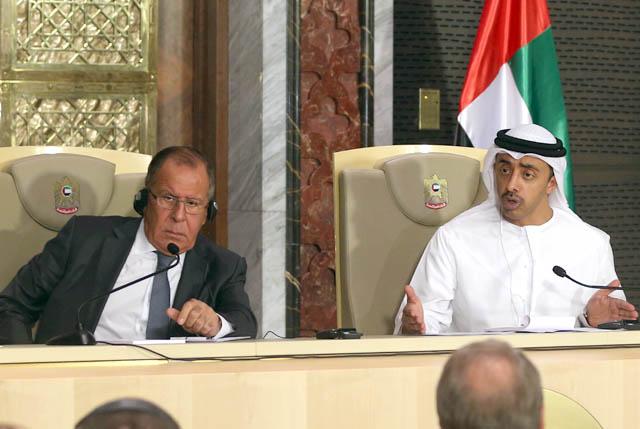You are here
Saudi prince says offer of troops reflects unease over Syria
By AP - Feb 21,2016 - Last updated at Feb 21,2016
ABU DHABI — A prominent Saudi prince said Sunday that the kingdom's offer to send troops to Syria to fight extremist groups reflects growing unease over the ability of US-led air strikes alone to defeat the Daesh terror group and end the Syrian civil war.
Prince Turki Al Faisal, speaking at a luncheon in Abu Dhabi attended by a handful of journalists, said the kingdom does not expect the US-led coalition battling Daesh, of which Saudi Arabia is a member, will succeed unless there is a ground intervention.
Saudi Arabia has made clear that its willingness to send special forces to Syria is contingent on the US leading the ground effort.
"The world community has the capability, economic, political, military and otherwise, to put a stop to the killing," he said.
"I think it is high time that people said enough is enough, but simply saying it is not going to do it. There has to be concrete action on the ground to put a stop to the killing."
He added that he has not seen any indication from Saudi leaders that if Saudi troops were deployed to Syria, they would also fight Syrian President Bashar Assad's forces.
Riyadh is one of the main supporters of Syrian rebels battling to overthrow Assad. Its regional rival Iran is one of Assad's main backers.
The prince, who does not hold an official seat in government, is an influential and outspoken member of the Saudi royal family. He headed Saudi Arabia's General Intelligence Directorate for more than two decades until September 1, 2001, and held ambassador posts to the US, the UK and Ireland.
Speaking earlier at a press conference, he said Muslim countries need to take the lead in fighting terrorism.
The kingdom is currently hosting an 18-day military exercise with 20 members of a recently announced Islamic counterterrorism alliance, which includes Pakistan, Sudan, Jordan and neighbouring Gulf states.
Defence ministers from the coalition of Muslim-majority countries are scheduled to hold their first meeting in Saudi Arabia sometime in March, and the Saudi leadership is working on making its capital a logistical hub for the 34-nation alliance.
The prince said that because the majority of victims of terrorist acts are Muslims, "it is our responsibility as Muslim countries to play the primary role in fighting this disease that has impacted us all".
Notably absent from the coalition are Iran, Syria and Iraq, all of which are battling Daesh.
Sunni-majority Saudi Arabia and Shiite-majority Iran are fiercely divided on a host of issues and support opposite sides in the wars in Yemen and Syria.
Relations worsened after the execution of a popular Shiite cleric in Saudi Arabia last month, which triggered protests in Iran and the ransacking of the Saudi Embassy and another diplomatic mission there. The two countries then severed diplomatic and trade ties.
As Iran readies for parliamentary elections on February 26, the prince said he has little hope that those elected will help bridge the political divide.
He said the vote is likely to make the relationship "even worse" because some liberal and reformist candidates were barred from running by the country's Guardian Council, which vets candidates.
"You are going to get a very conservative [parliament] as is the present one, and so we're going to have more of the same," he said.
Related Articles
ABU DHABI — The United Arab Emirates urged Iran and Turkey on Monday to end what it called their "colonial" actions in Syria, signalling une
GENEVA — Switzerland said on Sunday it will represent the interests of Iran and Saudi Arabia in both countries after the rupture of diplomat
BEIRUT/LONDON — Iran played a significant role in defeating Daesh in the Middle East and has brought stability to most of the region, Suprem

















